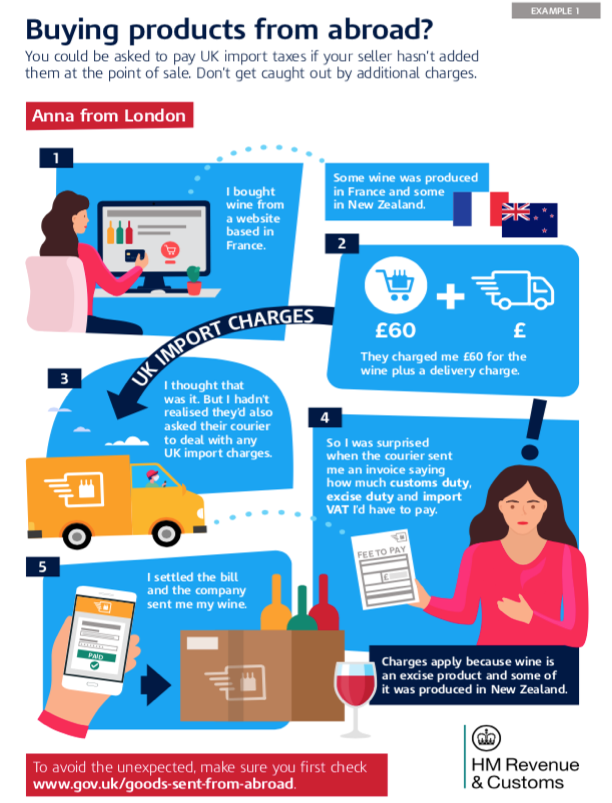Christmas shoppers warned not to get caught out with extra charges

With just 100 days to go until Christmas, HMRC is urging shoppers to ensure they don’t get caught out by unexpected charges when buying from overseas traders.
Changes introduced on 1 January this year mean that some UK consumers buying presents for family and friends from EU businesses may now need to pay customs charges when their goods are delivered.
In the same way that consumers have previously had to pay charges when buying certain items from non-EU sellers, the same rules now also apply to goods being bought from the EU.
Shoppers buying stocking fillers or small items don’t need to worry about the changes. Only those buying excise goods – tobacco or alcohol – or ordering luxury items or presents in consignments worth more than £135, before discounts are applied, should be affected.
VAT will still apply on purchases made in consignments worth less than £135 but should be charged by the seller at the point of sale.
But anyone buying a more expensive product from abroad may need to pay import VAT, customs duty and/or excise duty when they receive their order. The amount due will depend on a range of factors, so to avoid surprises consumers should check with their seller to ensure they don’t end up over budget this holiday season.
To help shoppers, HMRC has produced diagrams to explain the various scenarios when buying from the EU. The government has also published easy to follow guidance for consumers to help everyone to understand the changes and when, why and how charges will need to be paid.
Katherine Green and Sophie Dean, Directors General, Borders and Trade, HM Revenue and Customs (HMRC) said:
“With 100 days until Christmas, we want to remind shoppers of the changes introduced since 1 January so that their present buying experience is as smooth as possible, and that online shoppers don’t inadvertently get caught out by any unexpected charges.”
Find out more about the new rules by checking on GOV.UK for a simple guide to the possible charges as well as essential information on how to dispute a charge, return unwanted goods and to get a refund on the charges paid.
Consumers can also find guidance on what may be required when sending or receiving items from friends and family living abroad.
Notes
1.In most cases consumers buying non-excise, commercial goods sent in consignments worth less than £135 should not see any changes to the way they buy goods online from EU sellers, as VAT is collected by the seller on behalf of HMRC at the point of sale. Anything above £135 is normally collected at the point of customs duty (at the border).
2.Shoppers buying excise goods, such as tobacco or alcohol, or goods in consignments worth more than £135, before discounts are applied, may need to pay import VAT, customs duty or excise duty when their goods are delivered. The value of the import VAT is calculated based on the value of the goods for customs purposes plus any customs duty. Therefore it may appear to be higher than 20% of the original sales price.
3.Shoppers that know they will need to pay import VAT should make sure the EU seller does not charge them sales VAT, otherwise they may be charged twice.
4.Customs duties and tariffs will not apply on goods that meet the EU-UK Trade and Cooperation Agreement rules of origin. The person handling the customs declaration should ensure the goods meets the origin requirements in order to claim the preferential tariff as part of the customs declaration.
5.For more information on Tax and Customs for goods sent abroad visit gov.uk

